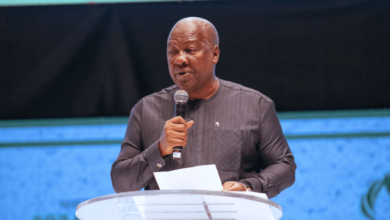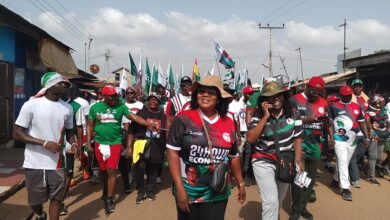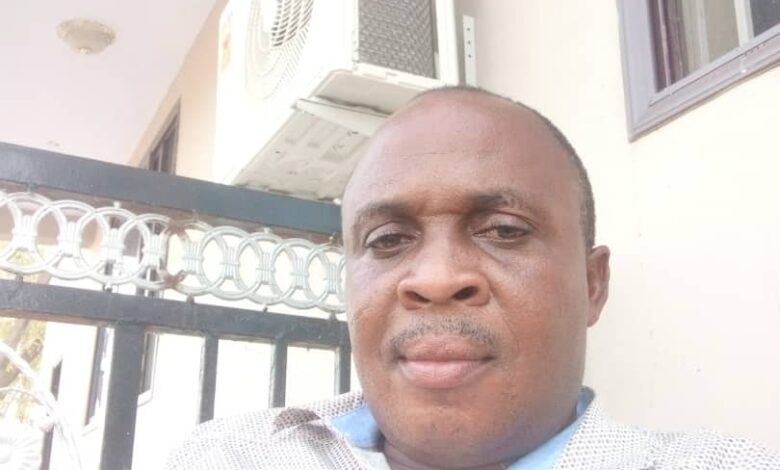
It seems there’s a perception among a significant portion of Ghanaians that Dr. Mahamudu Bawumia, with his background as a political economic expert and his role as the head of the economic management team, bears a significant responsibility for the economic challenges facing the country. This sentiment is especially pronounced given his prominent role in articulating the government’s policies and defending its actions through lectures and political discourse.
David Dunu, a political analyst, shared this viewpoint during an appearance on the Adekyee Mu Nsem morning show on Ahotor 92.3 FM hosted by Nana Dogbe in Accra. Dunu suggested that while the New Patriotic Party (NPP) may have attempted to use events such as the COVID-19 pandemic and the Russia-Ukraine conflict to garner sympathy and support from the Ghanaian populace, the reality on the ground paints a different picture. According to him, the government’s attempts to justify the country’s economic situation using these events are perceived by many as attempts to manipulate the truth.
It’s evident from Dunu’s remarks that there’s a growing skepticism among Ghanaians regarding the government’s narrative on the state of the economy. Despite efforts by the NPP to frame certain events in a favorable light, the actual economic conditions experienced by citizens seem to contradict these narratives. This suggests a disconnect between official rhetoric and the lived experiences of the populace, fueling dissatisfaction and criticism towards the government’s economic management.
In another development, latest poll data from global info analytics has disclosed that 60% of voters believe that Vice President Dr. Mahamudu Bawumia must partly take blame for the country’s economic crisis.
The Election 2024 NPP flagbearer in recent times has tried distancing himself from the country’s economic woes.
According to him, he is not in full control of the nation’s governance but rather manages certain peculiar sectors, liking himself to a driver’s mate.
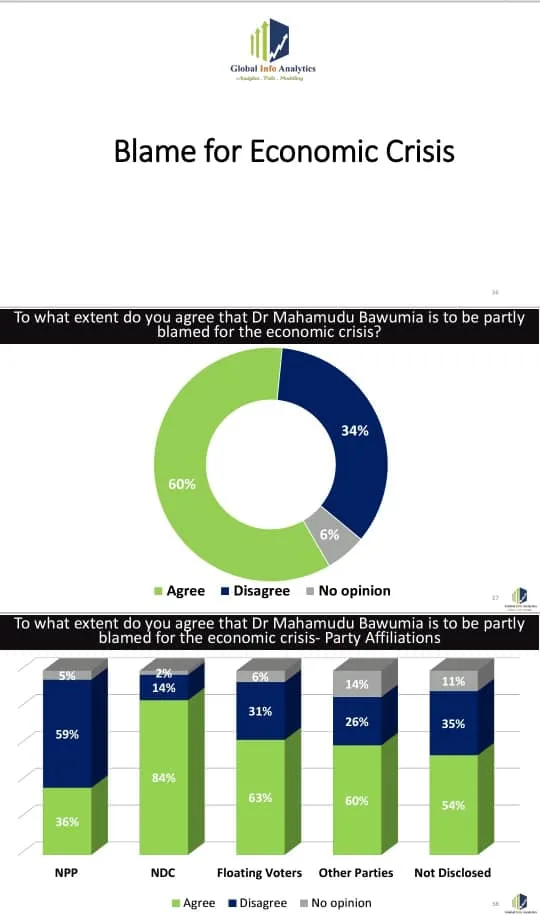
“I am like a driver’s mate, But if, by the Grace of God, you make me President, I will be in the driver’s seat with constitutionally mandated authority to pursue my vision and my priorities,” Dr. Bawumia told the nation on Wednesday, 7 January 2024, when he was outlining his vision for the country.
His comments have received backlash particularly, from the opposition but shortly after during the State of the Nation address, President Akufo-Addo reiterated similar sentiments, hoping to absolve his number two man from blame.
“Under the Constitution, the executive power of the State is vested in the President of the Republic. Ultimately, the President is responsible, and, therefore, takes the credit or the blame for whatever happens in his or her government,” President Akufo Addo told the electorate
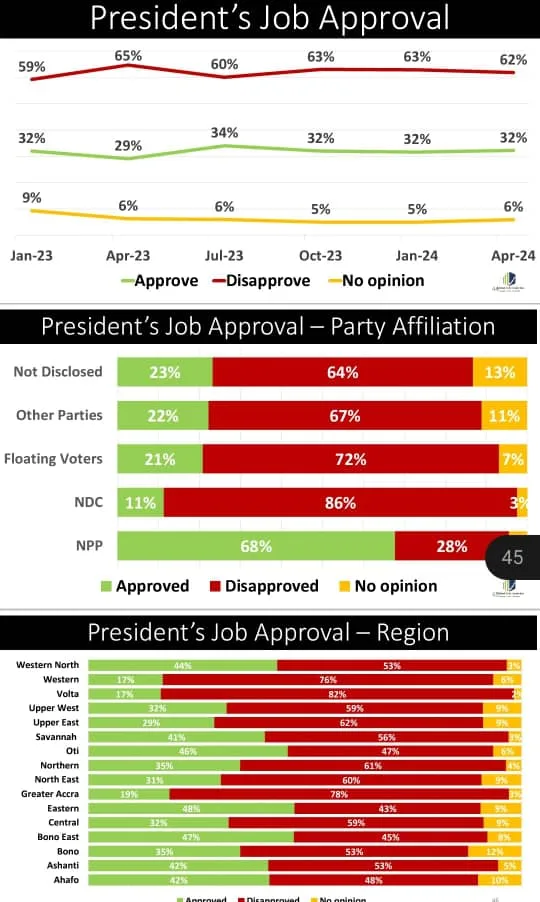
“There is no ambiguity about where the buck stops when it comes to responsibility for what happens in the government. It stops with the President, he or she has ultimate responsibility,” he insisted.
But the latest poll results show Ghanaians hold a differing position. While 60% of voter’s say the vice president is partly to be blamed for the economic crisis, 34% disagree with some 6% indifferent.
Additionally, per the poll data, 36% of voters from the Vice president’s party, the NPP also hold the view Dr. Bawumia is partly to blame with 63% of persons who say they are floating voters holding the same view.
Meanwhile, the poll has also revealed the President’s job approval rating by voters has remained stagnant at 32%, with his disapproval rating rising from 59% in January 2023 to 62% by the beginning of April.
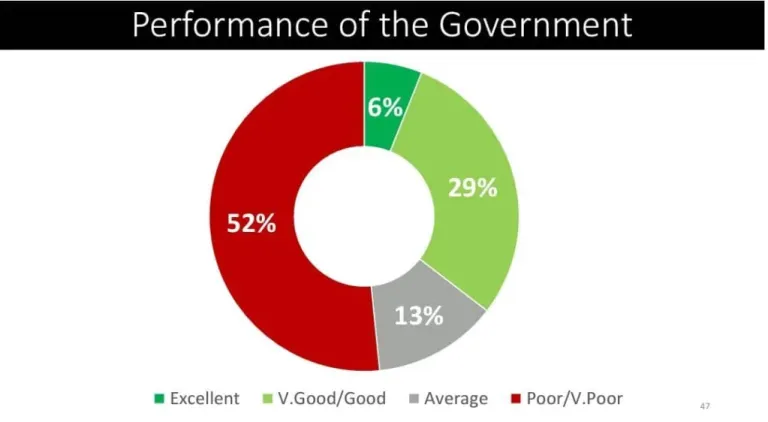
From a party affiliation perspective, 28% of NPP voters disapprove of the president’s job done, while 86% of NDC voters and 72% of floating voters equally disapprove.
The Greater Accra region is the region with the highest rate of disapproval, with 78% of voters from the region disapproving of the president’s job. In the Ashanti region, the president has a job disapproval rating of 53% while the disapproval rating in his home region, the Eastern Region is 43%, the lowest disapproval rate recorded.
In all 52% of voters have described the performance of the government as poor or very poor, with only 6% holding the view government performance has been excellent.
AYM Kukah.E-mail:kukahalexander7@gmail.com


